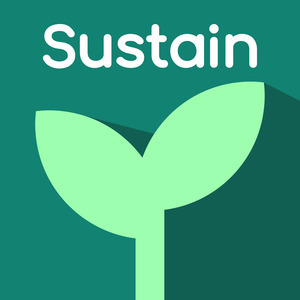Episode 240
Yo Yehudi on OLS and open science
July 5th, 2024
36 mins 57 secs
About this Episode
Guest
Yo Yehudi
Panelist
Richard Littauer
Show Notes
In this episode of Sustain, host Richard Littauer is joined by Yo Yehudi, Executive Director of Open Life Science (OLS), who discusses the importance of sustaining open source and scientific research. They cover topics such as the transition of OLS from a life sciences focus to all sciences, the importance of sharing scientific work openly, and strategies for building inclusive and sustainable communities within open source projects. Yo also touches on the challenges of funding and supporting volunteer-driven initiatives, their approach to managing volunteer contributions, and insights from their doctoral research on open source project sustainability. Hit download now to hear more!
[00:02:19] Yo describes OLS as an organization helping scientists to share their work globally, addressing the common issue of data loss when scientists leave academia without sharing their work.
[00:02:56] The conversation explores how OLS has expanded to include all sciences, not just life sciences, and even fields outside of traditional scientific disciplines.
[00:03:46] Yo critiques the traditional methods of scientific communication, highlighting the importance of sharing code and computational methods alongside traditional manuscripts.
[00:05:55] Richard and Yo discuss the inclusive definition of a scientist, emphasizing curiosity and rigor over formal educational credentials.
[00:07:28] There’s a discussion on OLS’s operational scope and strategic focus to prevent “scope creep,” emphasizing training, mentoring, and incubation projects.
[00:09:57] Yo details the team size and funding strategy of OLS, mentioning how they transitioned from a volunteer-based to a funded organization.
[00:00:00] Richard discusses the challenge of differentiating OLS for funding in a competitive space filled with similar organizations. Yo explains that OLS views similar organizations not as competitors but as potential collaborators, striving to differentiate by working together and clearly defining each other’s unique roles.
[00:16:20] There’s a discussion on volunteer contributions and avoiding exploitation.
[00:17:49] Richard and Yo discuss the challenges of altering the mindset around volunteer compensation and ensuring that project contributions are recognized and supported financially. Yo explains how OLS had adapted its approach to offering support, ensuring it meets diverse needs efficiently.
[00:20:44] The conversation shifts to how OLS assists open source practitioners in publishing their work and code effectively, emphasizing the importance of flexibility and thoughtful sharing practices.
[00:22:34] Yo highlights changes in OLS’s teachings, particularly focusing on equity and the experience of marginalized individuals in open source communities and talks about open access publishing.
[00:25:13] Yo acknowledges that using platforms like GitHub and arXiv could be viable options for sharing scientific work, providing it’s done responsibly, respecting privacy, and not including sensitive data.
[00:26:12] Richard draws a parallel between the challenges faced by scientists needing traditional publication credentials and open source contributors needing recognition for their contributions outside mainstream channels. Yo shares their personal stance on working within the capitalist system to bring about change.
[00:28:45] Yo details their doctoral study focused on the longevity of open source projects, noting their findings that the metrics used did not predict project sustainability as expected.
[00:32:23] Yo announces their recent successful defense of their doctoral thesis, emphasizing the importance of practical and community-focused approaches in open source projects.
[00:33:36] Find out where you can learn more about Yo and their work online.
Quotes
[00:04:10] “Science is everything else we see.”
[00:04:20] “Science uses a lot of code to create outputs, to visualize the work they’re doing, to understand things….code and computations come into science in so many different ways.”
[00:18:53] “We had a very low uptake, which was surprising, and then we changed the way we asked people to ask for money, and we had more [people ask for funds].”
[00:27:50] “The fact that open source really was founded pragmatically as a way to exploit free labor makes me uncomfortable.”
[00:33:14] “Make sure you have functional friendly humans.”
Spotlight
- [00:34:22] Richard’s spotlight is the book, _Joseph Banks: A Life _by Patrick O’Brian.
- [00:35:12] Yo’s spotlight is InterMine.
Links
- SustainOSS
- SustainOSS Discourse
- podcast@sustainoss.org
- SustainOSS Mastodon
- Open Collective-SustainOSS (Contribute)
- Richard Littauer Socials
- Yo Yehudi Website
- Yo Yehudi LinkedIn
- Open Life Science (OLS)
- Sustain Podcast with host Abigail Cabunoc Mayes
- Mozilla
- Joseph Banks: A life by Patrick O’Brian
- InterMine
Credits
- Produced by Richard Littauer
- Edited by Paul M. Bahr at Peachtree Sound
- Show notes by DeAnn Bahr Peachtree Sound
